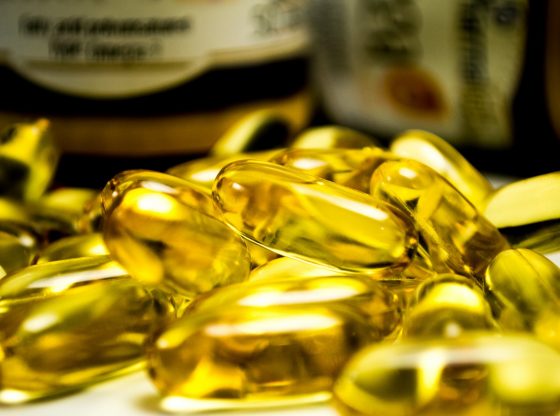
Is there a direct link between the added sugars in soft drinks and the growth of cancer tumors? New research sheds light on how high-fructose corn syrup may fuel colon cancer growth, at least in mice.
In the study published March 21 in the journal Science, researchers found that consuming the equivalent of 340 ml (12 ounces) – the equivalent of one can of soda – of a beverage sweetened with high-fructose corn syrup accelerated tumor growth in mice that were predisposed to colon cancer.
Previous research acknowledges that obesity increases the risk of cancer, and some studies even consider the existence of a causal relationship between this metabolic condition and cancer.
“our findings in animal models suggest that chronic consumption of sugary drinks can shorten the time it takes [colon] cancer to develop,”
– Study co-senior author Dr. Jihye Yun, assistant professor of molecular and human genetics at Baylor College of Medicine in Houston, said in a statement.
Though more research is needed to demonstrate whether high-fructose corn syrup promotes colon tumor growth in humans, the findings might have implications for cancer treatment or prevention.
“If you are predisposed to getting polyps, you should not be drinking any sugar-sweetened beverages,”
“If you have colorectal cancer, you could be feeding your tumor by drinking high-fructose corn syrup.”
– Lead author Dr. Marcus D. Goncalves, an assistant professor of medicine at Weill Cornell Medicine and an endocrinologist at NewYork-Presbyterian/Weill Cornell Medical Center.
The researchers noted that there’s been a rise in colorectal cancer rates among young people in recent decades and during the very same time that consumption of sugar-sweetened beverages has increased. If the new results shown by the researchers hold true for humans as well, the findings might help explain this apparent correlation.
By working on mouse models, the research team set about to find out if there is a link between dietary sugars and tumor progression but also to learn more about the mechanism at play. The team used mice with early-stage colorectal cancer in which they deleted a gene called “Apc.” This gene encodes a protein with the same name, and its deletion intended to simulate a mutation that characterizes fast-growing colon cancer in humans.
In the first stage of the study, the researchers allowed the mice to drink a sugary solution of 25-percent high-fructose corn syrup freely, the mice put on a lot of weight in just 4 weeks. The team then decided to serve the sugary drink in a way that would allow the mice to ingest it without putting on weight, providing the mice with the sugary drink through a specially designed syringe once a day for 2 months. The idea was to provide them with a limited amount of calories per day to avoid the rodents to gain weight during the experiment.
The team observed that the rodents in the second controlled calorie experiment had not put on too much weight, but they had indeed developed larger, more advanced tumors than the rodents who had only received water.
“These results suggest that when the animals have early stage of tumors in the intestines — which can occur in many young adult humans by chance and without notice — consuming even modest amounts of high-fructose corn syrup in liquid form can boost tumor growth and progression independently of obesity,”
– Jihye Yun
In a further stage of the study, the researchers aimed to find the potential mechanisms by which the sugar in corn syrup fueled fast tumor growth. They found that the mice with the Apc mutation that received moderate daily doses of the sugary drink had high amounts of fructose and glucose — two different types of sugar — in the colon as well as in the blood. This suggests that cancer tumors were able to collect and use these sugars through different routes.
Next, using high-sensitivity tools they found that fructose underwent certain chemical changes in the body which allowed it to boost glucose’s tumor-promoting effects. Their findings suggest that the role of fructose in tumors is to enhance glucose’s role of directing fatty acids synthesis.
“The resulting abundance of fatty acids can be potentially used by cancer cells to form cellular membranes and signaling molecules, to grow or to influence inflammation.”
– Jihye Yun
While further studies in humans are necessary, the researchers hope this research will help to raise public awareness about the potentially harmful consequences consuming sugary drinks has on human health and contribute to reducing the risk and mortality of colorectal cancer worldwide.
Reference:
Marcus D. Goncalves, Changyuan Lu, Jordan Tutnauer et al. High-fructose corn syrup enhances intestinal tumor growth in mice DOI: 10.1126/science.aat8515











![OpenAI. (2025). ChatGPT [Large language model]. https://chatgpt.com](https://www.illustratedcuriosity.com/files/media/55136/b1b0b614-5b72-486c-901d-ff244549d67a-350x260.webp)
![OpenAI. (2025). ChatGPT [Large language model]. https://chatgpt.com](https://www.illustratedcuriosity.com/files/media/55124/79bc18fa-f616-4951-856f-cc724ad5d497-350x260.webp)
![OpenAI. (2025). ChatGPT [Large language model]. https://chatgpt.com](https://www.illustratedcuriosity.com/files/media/55099/2638a982-b4de-4913-8a1c-1479df352bf3-350x260.webp)








